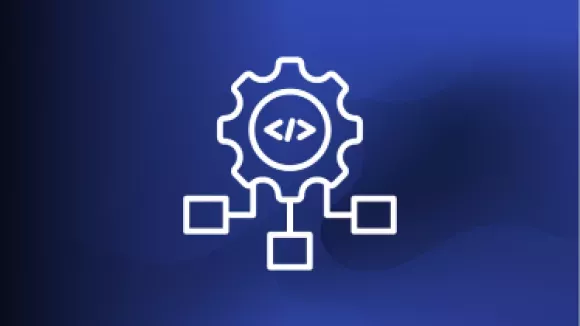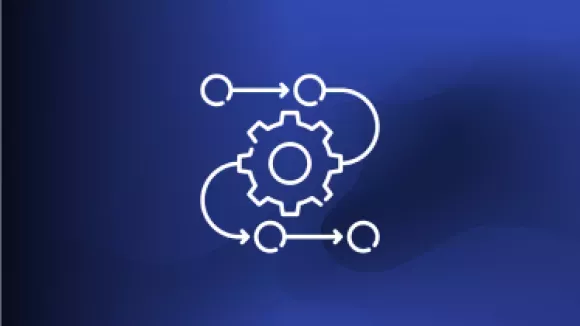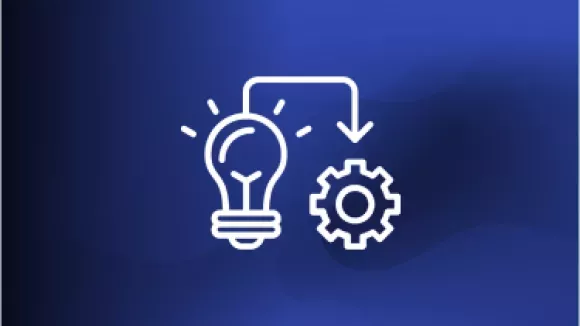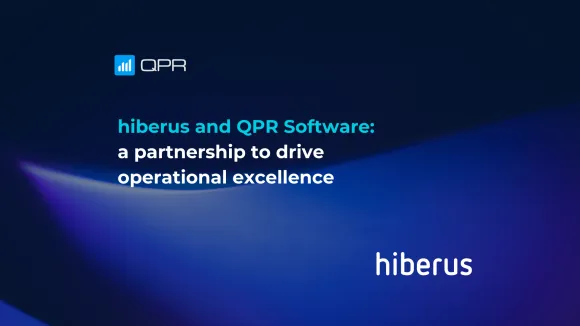Development of a microservices architecture for one of the leading companies in the pharmaceutical sector.
#WE ARE
DIFFERENT
#WE ARE
DIFFERENT
What sets us apart
Advantages of microservices

Modularity
Microservices are self-contained services that are developed and deployed independently. If one part fails, it does not affect the whole application.

Flexible scaling
We reduce the risk during deployments by being a modular application, in which each part can be scaled horizontally.

Versatility
Each microservice can be developed on a different technology, allowing you to choose the one that best suits your application.

Reusable code
Typical functionalities developed by third parties or hiberus professionals can be reused to avoid writing code from scratch.

Simple implementation
Microservices-based applications are modular, making them quicker and easier to implement than monolithic applications.

Agility
Teams can work more independently and faster, helping to shorten development cycles and improve organisational performance.
Technologies
Strategic alliances with the market's leading technology providers
Inspiring client success stories
Empowering the success of leading companies internationally
#
THINGS
HAPPEN
HERE
More than 10 years implementing microservices
Those who make our success possible

‘We define solutions with Microservices that ensure agile and scalable integration, adapted to the needs of your business’.
Sergio Gil
Head of Modern Applications

‘We help our customers implement Microservices from design to execution, ensuring a flexible infrastructure.’
Rodolfo Torrealba
Senior Software Architect
The latest news from hiberus
FAQs
Microservices is an architectural and organisational approach to software development that has been gaining popularity in recent years as companies seek to become more agile and evolve towards a DevOps methodology.
The goal of microservices implementation is to design an application as a set of small, independent services that work together to solve problems. Each microservice is responsible for a specific task and communicates with the others through an established interface. They can be programmed in different languages and use different data storage technologies.
The peculiarity of microservices is that they allow developers to iterate quickly and independently thanks to the isolation of APIs. In this way, they can modify only one service by incorporating small improvements in limited iterations over time without altering the rest of the infrastructure.
Some of the advantages of microservices are:
- Increased scalability: microservices can be replicated, allowing the performance and capacity of an application to be increased very easily (or automatically, at best).
- Better reliability: if a microservice fails, it only affects that part of the application, so the rest continues to function correctly.
- Greater flexibility: microservices are easier to modify and update individually. This makes it possible to improve and change an application quickly and easily.
In a monolithic architecture, all processes are compiled in one piece and run as a single service, so that if one process experiences a peak demand, the entire architecture needs to scale. The larger the code base grows, the more complex it is to add or enhance the features of that application. This complexity makes it difficult to experiment and implement new ideas.
In a microservices architecture, an application is built with independent elements that work together to perform the same tasks. Each of these services, called ‘microservices’, performs a single function and can be updated, deployed and scaled to meet the demand for specific functions of an application without affecting the operation of the other microservices.
Monolithic architectures are sometimes chosen over microservices because of their simplicity and low cost. However, if the software needs to evolve and develop, there will come a point where this type of architecture will not be able to respond to the growing demands of the application and problems of upgradeability, scalability, deployment and maintenance will occur.
In contrast, microservices architecture facilitates scalability and reduces application development time. In this way, in addition to always being able to adopt the latest technology as it evolves, it helps to accelerate the time to market of the new architecture.
Therefore, it is advisable to use microservices in the following situations:
- The monolithic application is so successful that its performance starts to suffer in high load situations (e.g. Black Friday seasons for e-commerce shops).
- The company that is going to develop the application belongs to an industry with a fast pace of change or to a highly competitive industry, such as technology, e-commerce or finance.
- The application is best developed with a microservices architecture (if the application is expected to have a high volume of traffic, you want to use advanced tools, you require continuous delivery, or you want to improve the efficiency of your software development and operations, among other cases).
Microservices are linked to the concept of a ‘container’, an individual software package that includes the code together with all necessary dependencies to ensure fast execution of the application or service. In a microservices architecture, each service is created individually in containers in the same environment.
Containers make it possible to create replicable infrastructure templates, automate tasks, reduce the effort of configuring new functionality and quickly identify components that need corrective or preventive actions. In this sense, they help simplify the configuration, parameterisation, maintenance and management of packages, which translates into greater development agility and time savings.
At hiberus we are leaders in the development of microservices architectures. Our team of experts has the skills, experience and knowledge necessary to help you migrate your digital business to an architecture based on microservices.
We are our customers' microservices technology partner. We understand your business and we adapt to your context to provide you with the best solution and the best service according to your needs and objectives. All of this with the aim of helping you grow.










